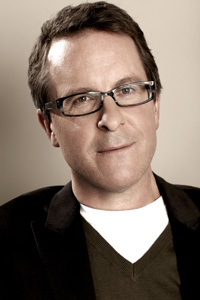Ravinia may jettison music director post after Conlon, says Kauffman
The Ravinia Festival isn’t rushing to name a successor to James Conlon, who begins his final concerts as Ravinia’s music director Wednesday night. In fact, Ravinia chief Welz Kauffman is floating the idea that the venerable summer music festival may elect to go without a music director at all, for the first time in fifty years.
The move is not unprecedented. In 1936 the Chicago Symphony Orchestra made Ravinia its official summer home, and the festival operated without a regular music director for 28 years. Ravinia’s chief executives hired conductors and planned seasons. That changed in 1964 when Seiji Ozawa became the festival’s first music director, followed by James Levine (1973-93), Christoph Eschenbach (1994-2003) and Conlon.
Traditionally, Ravinia has fielded an international conductor to provide artistic direction, oversee repertoire choices for classical events, and lead most Chicago Symphony Orchestra concerts.
But much has changed at Ravinia under the tenures of Conlon and president and CEO Kauffman. In 2007, for example, Conlon conducted 12 of the CSO’s 17 concerts; this year he conducts just five of 16. Six of this summer’s CSO’s concerts feature movie music, Broadway or jazz. (Conlon was also closely involved in Ravinia’s increased emphasis on reaching audiences beyond its Highland Park campus and in music education, which the festival CEO wants to continue.)
Maybe, Kauffman suggests, it’s time to radically reconsider the post of music director altogether.
“I don’t have a timetable, and we don’t have a search committee,” said Kauffman. “We didn’t have a search committee the last time around [with Conlon] or the time before that. And we didn’t have one with Levine.” Levine’s two decades as music director marked an artistic high point for the festival.
Ravinia has also seen a broader sea change in its mission from the time when the festival existed primarily as the summer home and showcase for the Chicago Symphony Orchestra with classical events as the main attractions. While there are still CSO evenings of standard classical fare, most of the festival’s core classical programming is now concentrated on recitals and chamber music.
Today, the festival’s primary focus is on pop music, which attracts Ravinia’s largest crowds. That shift has also affected CSO’s programming, which now typically feature film music or familiar blockbusters like Tchaikovsky’s 1812 Overture.
Filling Ravinia’s 3,500-seat pavilion for concerts of unfamiliar classical repertoire has proven increasingly difficult in recent decades.
“Here we are in 2015,” said Kauffman. “Let’s look at the practical parts of it. How many concerts would a principal conductor/music director actually conduct in any given season? Does that number warrant the title?
“You have audiences clamoring to see the talent that’s out there. I get that all the time from newbies coming to classical music who read about [conductors] like Susanna Mälkki or Mei-Ann Chen. There’s all this excitement around them. It’s not that audiences don’t want to see the same person on the podium, but they know that at Ravinia our time is short. And let’s see new people, let’s see what they bring to the table.”
Kauffman said the Ojai Music Festival in California offers an alternative to consider for Ravinia, where a different music director oversees the festival’s offerings each season.
“A musical curator,” said Kauffman, “someone who comes in for one year perhaps. Isn’t there something kind of exciting that someone could come in and talk about pop programming and jazz programming as well as chamber music recitals and what goes on at the CSO? For one summer?
[They could] start working three years in advance, and we’d see what comes of it. I think we should explore that model.”
